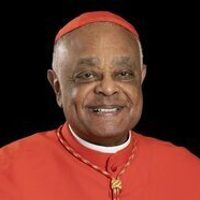Washington is a city of great monuments. Some of them are majestic in size and appearance. They often are used to give visible identity to the city of Washington. Other local monuments are more modest images of people whose contributions to the history of our nation may be less well known but vital nonetheless to the full heritage of freedom that we now enjoy.
One of those perhaps lesser-known monuments honors the contributions of Carter G. Woodson as the widely acknowledged father of African-American history. His monument is found in the memorial park dedicated to his name at 900 Rhode Island Ave., N.W., between 9th Street, Q Street and Rhode Island Avenue. This charming tribute to Dr. Woodson is very accessible. You should visit it. Unlike other more colossal monuments, you can approach it and see the details of the statue of Dr. Woodson up close. It was dedicated in 2016 as an appropriate recognition of the contributions of this great historian whose life work laid the very foundations for our February recognition of Black History Month.
Monuments, however, are not only made of granite and bronze. In today’s cyber world, we can capture living images of the historic and spiritual contributions of other famous people. One that I hold as especially important and treasured is the address that Sister Thea Bowman gave to the entire assembly of U.S. Catholic bishops gathered at Seton Hall University in the Archdiocese of Newark, New Jersey in 1989. This moving 32-minute presentation is available on YouTube, and it summarizes the wisdom and the witness of this extraordinary woman of faith and her compelling affirmation of her African-American heritage and her vibrant love for our Catholic faith.
Sister Thea’s cause for sainthood has been introduced in Rome, where I am certain that this video expression has been viewed by those in the Congregation for Saints who are examining Sister Thea’s cause for beatification and eventual canonization. It is a visual monument of her love for her heritage and her faith, and I urge all of you to view it. The U.S. bishops were deeply edified by her witness as she chided us to recognize and to welcome the gifts of Black people more effectively in the life of our Church. No one even now should ignore Sister Thea’s challenges to the Church that she deeply loved and served.

Monuments take us back to the achievements of historic figures, but they are not simply limited to the past. They invite us to focus on tomorrow and challenge us to consider how we can make important contributions to the communities and people that we love. Our D.C. monuments not only allow us to focus on yesterday, but they should encourage us to work for the improvement of our own nation and its future.
The spiritual legacies that we read about as contributions of past heroes and heroines should inspire us to make contributions for the future life of our Church. The ancient Christians were edified and strengthened by the witness of the martyrs who surrendered their lives for the faith. The eyewitnesses often wrote down the Acta [descriptions of the suffering of those who died as martyrs] to serve as inspirational encouragements for themselves. Black History Month is not simply about history. It is a clarion call and summons for a better tomorrow for all people in our nation and society.
(Cardinal Wilton Gregory, the archbishop of Washington, writes his “What I Have Seen and Heard” column for the Catholic Standard and Spanish-language El Pregonero newspapers and websites of The Roman Catholic Archdiocese of Washington.)












